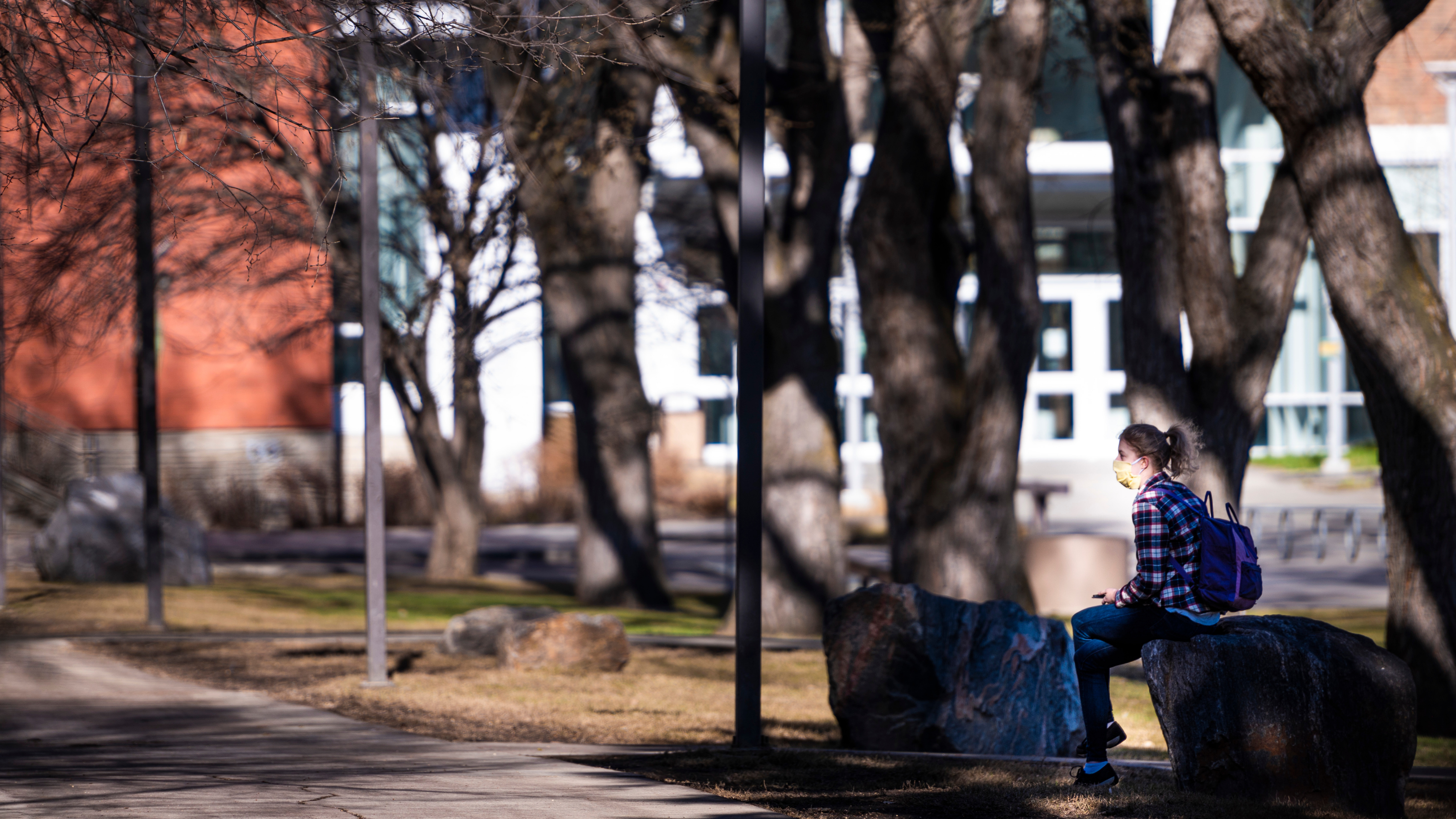As we prepare to begin campus life with more in-person classes and services, it’s reasonable to anticipate feeling a wide range of emotions, from excitement to anxiety. We will all respond differently to coming to campus, and that’s okay! There is no one right or “normal” response. Counselling & Clinical Services put together a resource guide to preparing for coming to campus and coping with various reactions. I've pulled out ten of the suggestions I found most useful. For more information, I recommend reading through the entire document!
Remember to practice being realistic
Take a minute to stop and ask yourself, “what are my greatest fears or worries about returning to campus, and what do I foresee to be my biggest challenges?” Sometimes we worry about things that are not realistic or probable. To better examine how rational our fears and worries are, we can ask ourselves the following questions:
- What is the evidence that supports my prediction? What is the evidence against my prediction?
- On a scale of 0% to 100%, how likely is it that my worry will come true?
- What is most likely to happen?
Once we ask ourselves these questions, we can identify a more balanced thought process.
Look forward with excitement
What is going to be exciting or positive about your return to campus? What are you looking forward to that you have missed? What good will you gain in your life by returning? What did you learn from the pandemic that you want to continue doing?
Adjust your routines
The past year has challenged many of our typical routines and daily life activities. In order to adapt and cope with COVID-19, we have had to forgo some of our usual routines, and accept a great deal of constant change and uncertainty in many parts of our lives. For many, the foundational health practices of sleep, eating, physical activity, and recuperation, have become disrupted, uneven, and out of sync. It’s an understandable and almost inevitable change, so don’t stress out too much if, for you, healthy habits have slid! Preparing to return means patiently rebuilding and revitalizing many of those former routines.
Anticipate struggles
Throughout the last 18 months, we have been encouraged to stay away from people and remain inside to be safe; as creatures of habit, we have adjusted to this life of isolation, no matter how difficult it may have been. Now we face a new challenge: returning to a social world. Getting back into a social world may cause you to feel overwhelmed, even for those who consider themselves extroverts. Your senses may feel overloaded as you take in all of the sensory input you haven’t experienced over the past few months. It is important to be gentle with yourself and others as we all adjust to these re-introduced social cues and new sensory input.
Own the awkwardness
Expect that there will be some discomfort and awkwardness, not just for you, but for everyone around you. Acknowledging the awkward is helpful to reduce tension, and naming it can help take its power away in that moment.
Respect boundaries
As people become comfortable with their own social boundaries, you may potentially experience micro-rejections throughout the day. This may look like people moving further away from you, or not wanting to hug or high-five.
Listen and respond to distress
To help with distress in the moment, pay attention to triggers and warning signs, try to not avoid your emotions, accept that the distress is present, and respond by having ways to gently reduce or cope with it.
Approach, don't avoid
Like all of our emotions, anxiety has an adaptive value and is meant to keep us safe and protected from danger. However, continued avoidance and isolation from others as restrictions ease may only reinforce anxiety that may no longer be necessary. One of the most effective treatments for many forms of anxiety is regular, gradual exposure to our feared object. Using approach skills (rather than avoidance) allows us to face our fears, re-evaluate predicted outcomes with actual outcomes, and gain skills along the way. When we take small steps rather than go all in, it can be a better way to tolerate distress and increase our chance for success. For instance, if you have fears about leaving the house, make a point each day to leave, even if it’s a walk around the block for 15 mins. With each small step towards approaching your anxiety, make sure to acknowledge your efforts, give yourself a pat on the back, and accommodate the new learnings.
Protect yourself and others
Vaccines are the best way to protect yourself and all members of your community. Vaccines are available at no cost both on and off campus. Vaccines have been shown to prevent serious illness and reduce coronavirus transmission. (And starting September 1, the U of A will require all those coming to campus to be fully vaccinated or undergo regular rapid testing.)
Be aware of misinformation
As you continue to make decisions about your health and safety, assess the source of the information you are viewing or hearing, examine the supporting evidence, consider any personal biases (we all have them) that may have drawn your attention to this information and seek out factual information.
If you are struggling, please reach out to Counselling and Clinical Services for help. There is no shame in asking for help during this stressful time. Likewise, you can register for a Refresh! Restart! Coming Back to Campus in the Context of COVID workshop—they are being offered throughout the fall.
